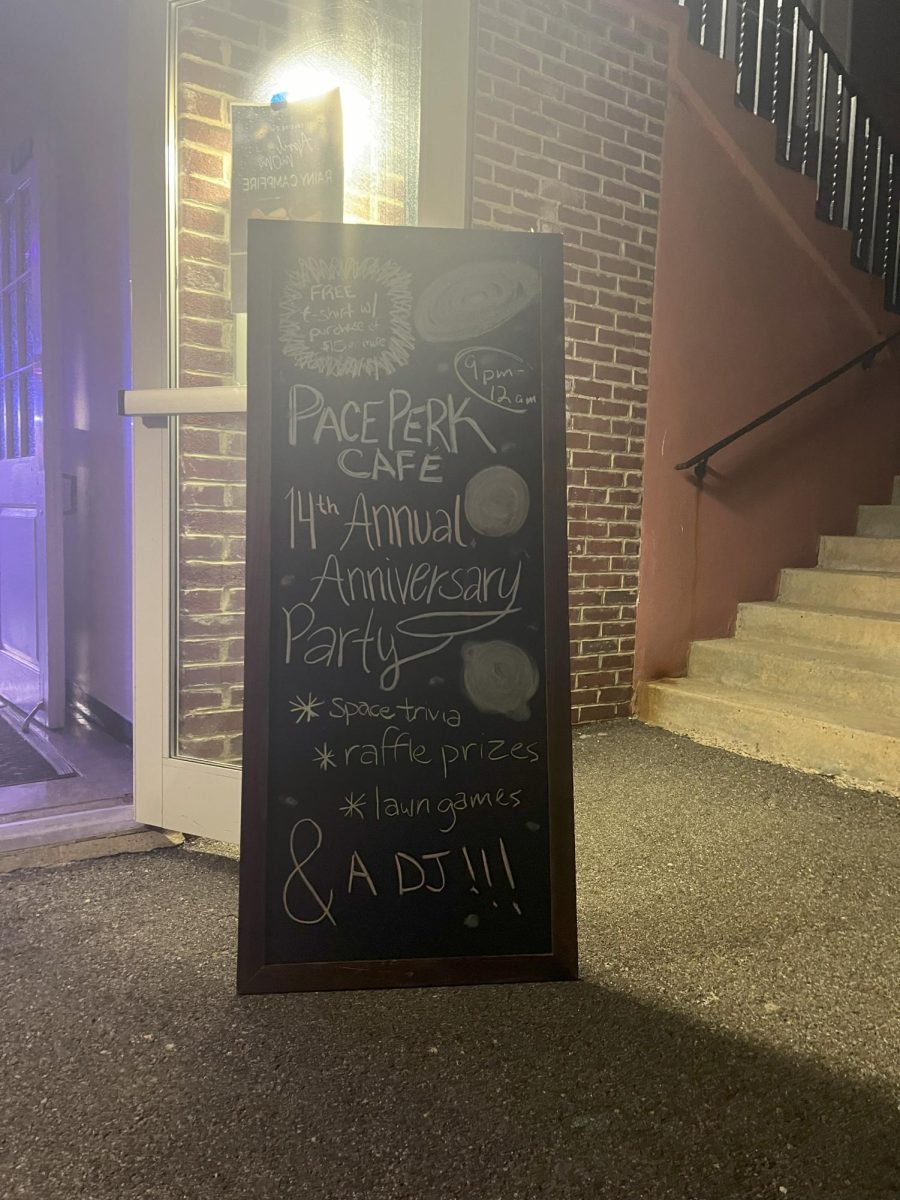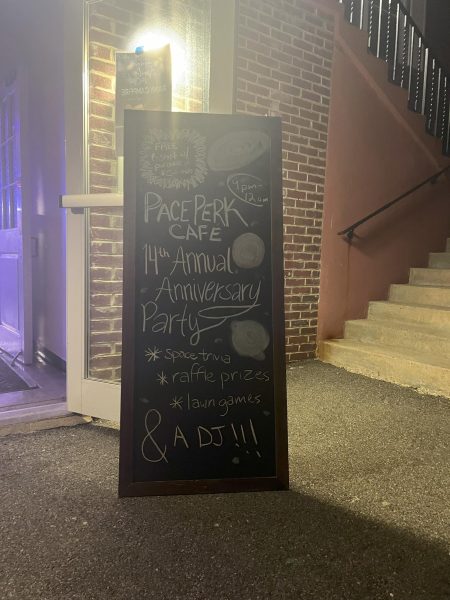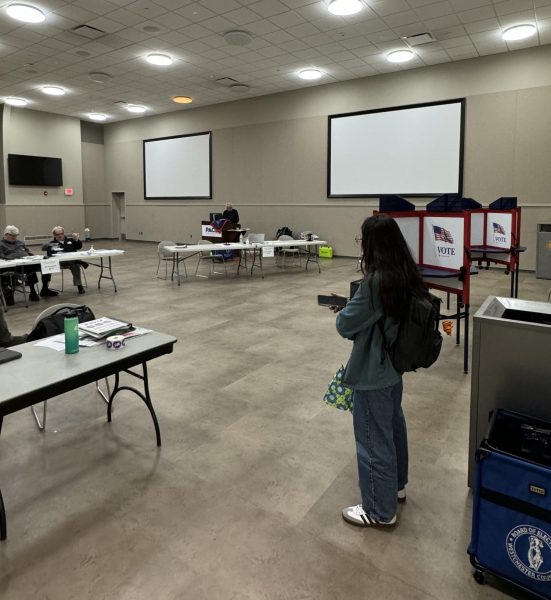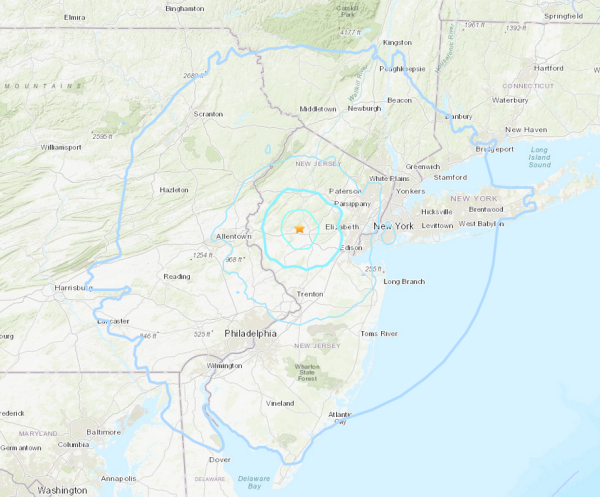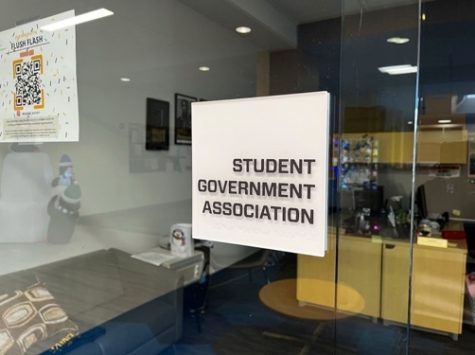Pace Looks to Increase its Online Presence
Pace has recently created a Pace Online Instagram page and is hoping to utilize social media and internet resources as a recruiting tool for potential online students, since they do not have the traditional college tours and open houses that traditional college students have.
April 20, 2019
The evolution of technology has affected the way society lives and works in their daily lives. The internet has strongly impacted the variety of ways people choose to learn and enhance their education. As many students look for online course options and are taking their graduate degree programs completely online, Pace sees an importance in improving the quality and quantity of online courses and degree programs.
During President Marvin Krislov’s State of the University Address in February, the president emphasized the importance of prioritizing improvement in online education to assure Pace’s success in the modern world of tech.
“Online education provides an opportunity that we must embrace,” Krislov said. “But we also must make sure we pursue it in a way that lives up to our academic standards – and supports our students and faculty in making the transition to online instruction. Online education will be a big part of Pace’s future.”
Online courses are a way students can meet the demands of their education, as well as have flexibility when it comes to work, learning styles and family life.
Pace’s graduate programs are seeing the biggest increase trending towards complete online degree programs, as many of these students have more family and work responsibilities than undergraduate students.
Shawn O’Reilly, associate vice president for professional education and special programs, is overseeing the online programs at Pace and stressed the need for the university to increase its online graduate degree programs in order to not fall behind other institutions.
“One in every four graduate students is studying in a total online degree program, so when Pace does not offer these modalities, we are losing a significant amount of students,” he said.
The graduate degree programs are where the most effective online programs are located because many of the students have already had their undergraduate experience, understand that they can handle the demands and work level of a college student and are self-motivated to complete the work which gears them for a successful online experience.
Pace currently only offers seven online degree programs for graduate school programs. O’Reilly said that they are still in the beginning stages of the planning process for increasing online graduate programs, but they do hope to make a significant increase in the amount of degrees offered online.
The undergraduate level is also seeing an increase in online courses and a higher desire for students to take online courses in a different way. Many students are allowing the flexibility of online class scheduling to help them graduate on-time, and are able to fit more courses into their schedules with work and family life, as well as avoiding time contradictions with other courses.
Jane Collins, associate professor for English and Modern studies, was one of the first professors to ever teach an online course, British Literature, at Pace 20 years ago. She was one of three professors to receive a grant to start online course programs. Collins still teaches online, in-person, and hybrid courses today, and has seen a shift in the types of students who want to take an online course.
“At the time, all the students in my class were adult students who were working [and had families]… but that population of who takes online class has changed over those 20 years, and so now, lots of people who are undergraduates, who are students on a physical campus… take an online course because it allows them to have a more flexible schedule,” said Collins.
Additionally, online courses have proven to benefit those who enjoy learning in a specific atmosphere. Shy and timid students who would rather nor share their thoughts in an in-person setting may benefit from the online discussion boards and sharing their opinions through the safety of a computer screen.
Collins said that as a professor, the discussion and participation of the students are easier to maintain online because students have to participate in the written statements and respond to their classmates posts with their insightful thoughts and comments, instead of avoiding eye contact with professors and hiding in the back of the classroom.
Collins explained that students feel more comfortable and create a deeper discussion with their thoughts on the topic with each other online.
[Most of my students discover] they like learning on their own and then sharing and working on the product of what they’ve figured out in the group setting online, where they don’t feel judged… through social cues that tend to organize traditional classrooms,” she said.
Megan Cochran, a first-year Adolescent Education major, decided to take all of her courses online during the spring semester. Cochran says it was an adjustment at first, but it has enhanced her educational experience.
“I had to focus more honestly and be able to stay motivated and complete all my class work on time,” she explained. “It was hard at first, but I think it made me understand some materials better.”
Cochran is utilizing the benefits of online courses to help her afford her college degree. She is able to work 40 hours per week to pay for her education thanks to the dearth of in-person courses.
Many other Pace students working or commuting can utilize what would have been their commuting time efficiently, as well as save money from avoiding public or personal transportation.
Although online courses can prove to be a benefit, students have to be self-disciplined and motivated to take the courses since many of the courses allow students to choose when and where they complete the work that would occur during their traditional classroom time.
Cochran also suggests that a disadvantage to online courses is not being able to create connections with the professors of the course.
Although the demand and trend towards online courses and degrees are increasing, online education is not going to replace the traditional classroom setting just yet, but will simply offer an alternative route and a more diverse set of options for students to choose from.
“I firmly believe that the traditional full undergraduate degrees are not going to go away,” O’Reilly said. “There is always going to be students who want that traditional experience and even a lot of those students take an occasional online class.”


